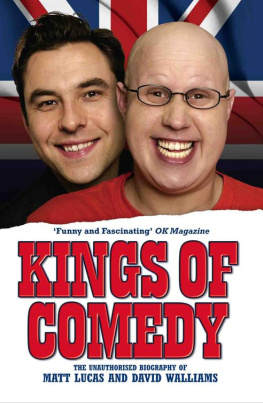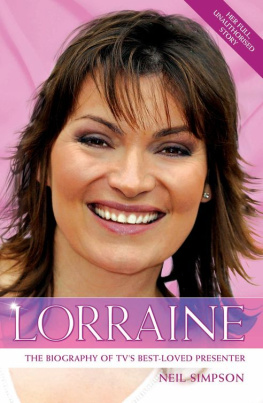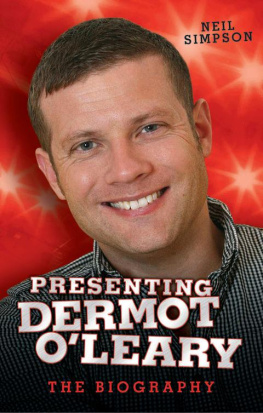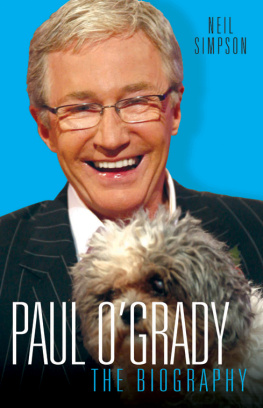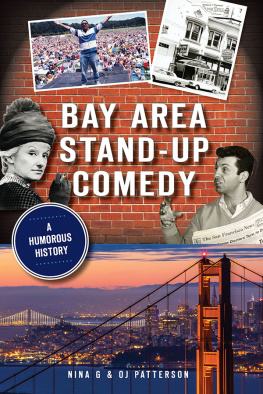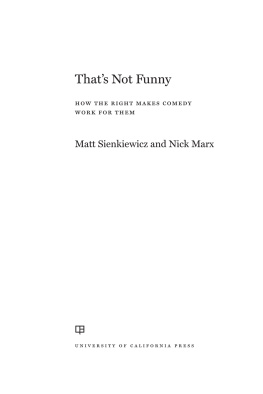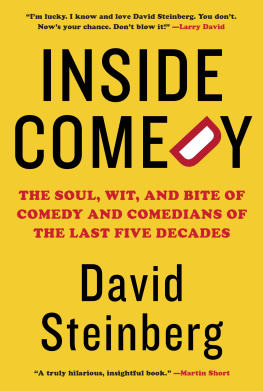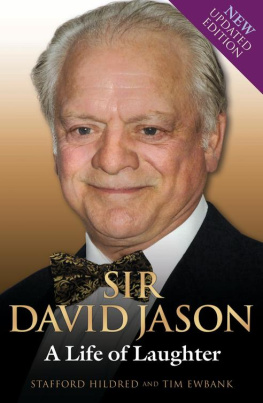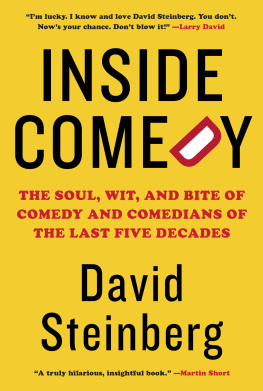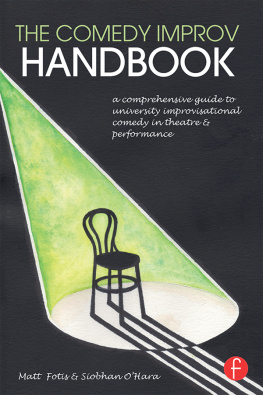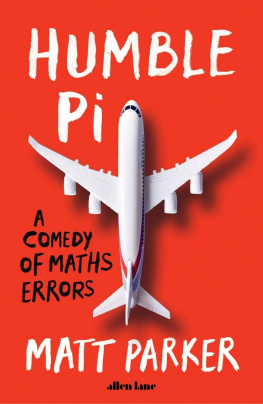T he curtain was due to rise in less than an hour and the ticket touts were getting frantic. People were crowding around them, all prepared to pay up to five times the 25 face value of any tickets they had on offer. But almost all the touts were empty handed. No one who had a ticket was selling, and tempers were getting strained.
Tickets? Come on anybody got any tickets?
The touts did one more sweep of the crowd outside Portsmouths 2,200-seater Guildhall Theatre. Surely someone, somewhere, was prepared to take the cash and give the show a miss? It didnt seem as if they were. For this was 25 October 2005, the first night of the first ever Little Britain live tour. And the show was already a theatrical phenomenon.
The original 100-date nationwide tour had been announced more than six months earlier and 150,000 tickets had been sold within the first six hours of release. The final batch of 50,000 tickets had been snapped up by the end of that first day and within a month dozens of extra dates had been added. When these sold out and the London dates were announced for the autumn of 2006, the phones rang off the hook as the central box office once more struggled to meet demand.
In Portsmouth, everyone knew that the opening night wasnt just the hottest ticket in town it was the hottest ticket in the country. Television crews were filming the crowds, and critics from every national newspaper had headed down from London to report on the action. The sense of anticipation and excitement was palpable. And inside the theatre the shows stars were feeling the heat.
Are we ready for this? Matt and David were sitting in make-up as the audience began to take its seats. And if they had poked their heads round from behind the fire curtain they might well have felt as though they were looking in a mirror. There were several bulky men badly dressed as women, some with parasols and lace gloves. Other younger men had squeezed into tight red PVC suits. Then there were the middle-aged women dressed in teenage-style shell suits with scrunched-up hair and plenty of eye make-up. As the pictures in the next days newspapers would attest, fans of Little Britain would go to amazing lengths to look like their favourite comedy characters characters who had become national institutions and extraordinary cash generators in less than five short years.
For Matt and David, the whole experience still seemed unbelievable in many ways it was as surreal as many of their most extraordinary sketches. This was to be the first time they had done a regular stage act together in nearly eight years. And the contrasts between that previous occasion and this one could hardly be greater. Back then they had been at the very bottom of the comedy pile, performing as the fictional thespian and raconteur Sir Bernard Chumley and his deeply disturbing sidekick Anthony Rogers (their unspoken joke had been Anthony rogers who?).
That act had endured the indignities of the very latest and least attractive slots at the Edinburgh Festival. Afterwards, they had slogged it out on the fractured comedy circuit in London, where audiences could be brutal and indifferent in equal measure. On one occasion, when the duo were supposedly headlining in a north London community centre that could seat 150 people, the theatre manager had asked the single-figure audience if they minded delaying the shows start by half an hour. A few more people might turn up when EastEnders finishes, he had said hopefully. The audience was happy to go back to the bar and wait, but the theatre manager turned out to be wrong. No one else did turn up and when the show finally began there were almost as many people off stage as on.
Portsmouth in 2005 was an entirely different world. Director Jeremy Sams, set designer Andrew Howe-Davies and stage manager Gareth Weeks led a near 50-strong team and had spent some 2 million putting together a massive high-tech show with two hours worth of computer-generated backdrops and settings, prerecorded voice-overs and music. And the show was to begin with a big set-piece scene that the stars could only have dreamed about a decade earlier. Matt and David had decided to open the show with a Lou and Andy sketch and, as the lights went down, Davids Lou was due to walk around the audience searching for his supposedly wheelchair-bound charge Andy. As the search went on, Matt, as Andy, was to fly across the stage on an invisible high wire before landing in his wheelchair. It was a complicated, expensive sketch that would drive the audience wild night after night. But in the early evening of 25 October in Portsmouth, no one yet knew that it would work. Despite all the rehearsals, no one was quite sure if they could pull it off. So everyone was nervous.
Before heading into the spotlights, Matt and David felt the familiar strains and symptoms that had dogged them ever since their first stand-up performances some 13 years earlier. Matt says he always feels a sense of immense tiredness immediately before the start of a show. Davids stage fright comes through in a feeling of near overwhelming nausea though both say the demons are banished as soon as they feel the stage lights on their faces. And, fortunately, that was exactly what was going to happen when the curtain finally rose on the 2005 tour.
You could tell that they were both nervous that first moment when they both got on stage together at the start of that first sketch and gave each other a quick smile that wasnt in the act, says Little Britain super-fan Martin Davies, who was sitting in the seventh row and had been bombarding the BBCs website for more than a year demanding a live show. But the reaction from the audience made it obvious that they were going to be OK and from then on I think they were able to enjoy themselves almost as much as I was.
And Martin wasnt alone. One early problem the producers and director soon discovered they would have to tweak for future shows was allowing long enough breaks and pauses for laughter and applause in rehearsals, the team had underestimated just how funny they were all going to be.
In many ways, everyone had been right to be cautious. It was true that in the autumn of 2005 Little Britain was a television and cultural phenomenon. It had won awards in the UK and around the world and was being shown everywhere from Israel to Russia. It was credited with single-handedly saving the BBCs troubled digital station BBC3. It accounted for a huge chunk of the profits of the corporations commercial arm, BBC Worldwide. Its catchphrases were heard in school playgrounds, offices, factories and even nursing homes. Even its scripts had become hardback best-sellers and it had won comedy awards around the globe.
But though the show and its two stars had already made the transition from stand-up to radio and on to television, the entertainment industry is littered with examples of small-screen shows that failed the final hurdle of going live. In recent years, Rik Mayall and Adrian Edmondson had created a stage hit with Bottom, but many other transfers had ended up falling flat.
There is a huge difference between making a television show, and focusing everything on cameras and close-ups, and commanding a stage in a huge auditorium, where the audience at the back can be more than 200 yards away from you, says director Ken Patterson. It is a different mindset, it requires a different performance and in many ways it needs entirely new material. People dont pay big money just to see a copy of something they can watch at home. Expectations are high in live theatre and if it doesnt work out from the very start youll know about it and you can find it hard to recover.
As if to prove this point, the critics were not universal in their praise for the opening show in Portsmouth. Yes, they found plenty to rave about, and so there were plenty of wildly enthusiastic quotes to put on the advertisements for the following years London tour. There wasnt a dry seat in the house fans were wetting themselves with laughter, was the boys favourite line from the opening night review in the

